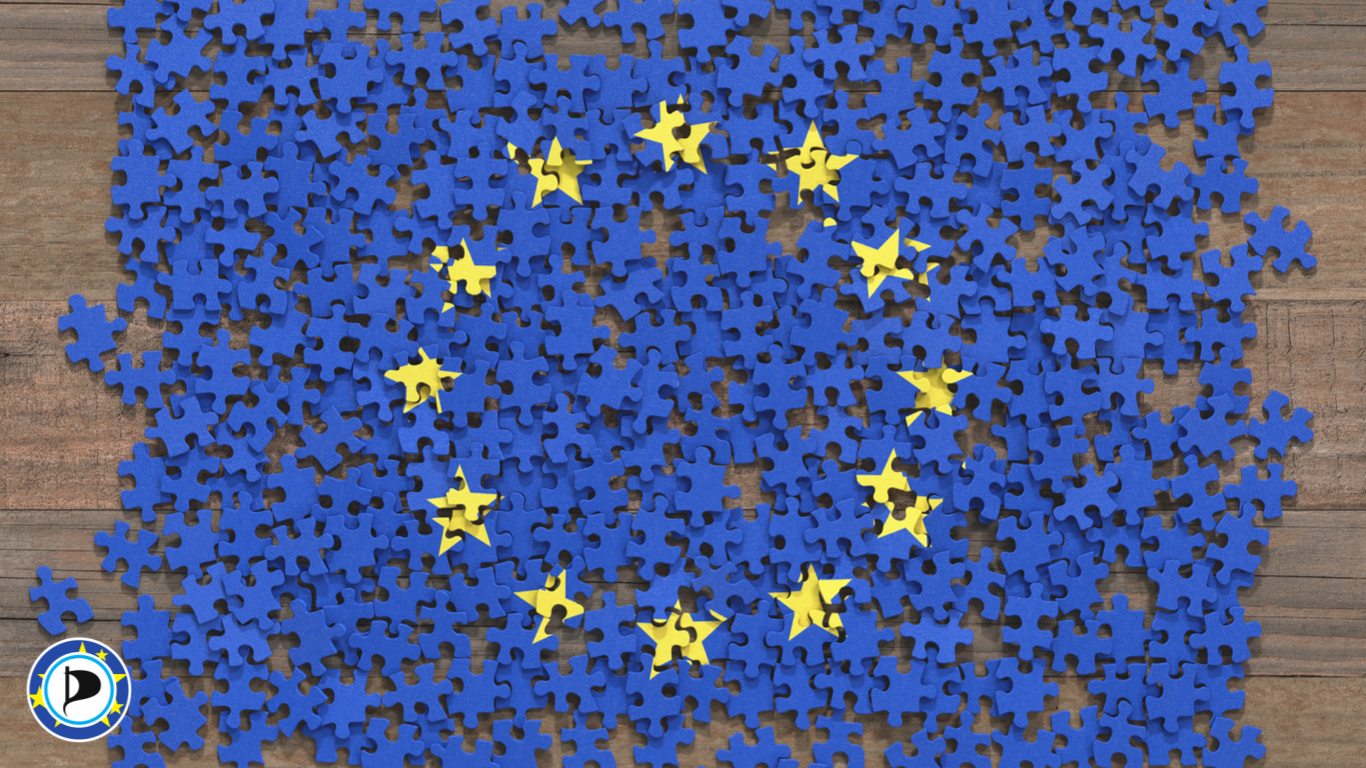The sudden invasion of Ukraine has revived painful and terrifying memories amongst all Europeans of the horrors that plagued the continent during the last century. Now once again, war on European soil has united the general public, which vocally calls for a more united response from the EU. That however has yet to fix one of its greatest weaknesses – the unanimity vote.
Putin most probably planned to launch this unprovoked attack against Ukraine for years. Only now though has he gathered enough courage to do so. Europe has lately appeared weak and disunited. The response to the COVID-19 pandemic, disputes over the rule of law conditionality mechanism and the withdrawal of Afghanistan gave Putin enough confidence to invade.
The EU has many times proven its horrendous ability to paralyse and cripple itself on its own rules. That counts especially on the unanimity vote. As long as one country can block decisions in the European Council, we will always go with the lowest common denominator, facing systematic deadlock situations. In our fast-changing world, that is a recipe for a disaster.
We need a rapidly evolving system that allows for flexibility and efficiency!
Thankfully, there is a better way to decide on European issues more rapidly. Historically, exchanging the unanimity vote system for qualified majority voting (QMV) in different policy areas has always incentivised the EU to forge a consensus. We need the same for our foreign policy.
Despite long negotiations to convince all Member States to impose stronger EU sanctions against Russia, the EU finally managed to agree on a compelling list of sanctions against Putin’s regime. Going forward, Ukraine would benefit from the EU’s prompt collective decision and actions regarding the ongoing and future issues the war has created. That will not be possible with the current unanimity requirements in place.
Thankfully, the ongoing Conference on the Future of Europe provides hope for a change in the voting procedures and steps towards further European integration!
Unanimity voting: A rusty cog in the machine
EU Member States have to vote unanimously on a limited number of policy areas that are considered to be sensitive. However, it’s common practice to implement the same unanimous measures even for policies that don’t require it. While Member States appreciate this gesture, it is obvious that its rigidity paralyses the system as a whole.
To avoid the deadlock in decision making, the EU has developed a system of QMV, requiring 55% of member states to vote in favour, in practice this means 15 out of 27 countries, and this should represent at least 65% of the total EU population. The beneficial impact of majority voting has since been recognised and used in further decisions.
It is time to move towards more European integration and unity. We cannot expect the EU to be a strong global actor if we keep on acting in the old selfish ways, protecting our own domestic interests. If the EU wants to finally unlock its superpower potential, it must scrap unanimity.
Continent of many interests Vs. A strong global actor?
When it comes to foreign policy issues, achieving unanimity has often proven to be a herculean task. Having all 27 Member States to agree on even small decisions like joint statements, let alone on coordinated security and defence responses could take ages. Unfortunately for us, war doesn’t postpone itself just to hear belated EU responses.
Over the past years, the Commission has proposed initiatives to move from unanimity vote to QMV in a number of fields, including on foreign affairs. This would greatly boost the EU’s effectiveness in external actions by ensuring that a single state or a small group could not block decisions. Europe could emerge as a strong and resilient bloc, truly defending our common interests.
This, however, is still just a far away dream. Many Member States oppose any extension of QMV to foreign policy due to various reasons. Smaller states fear to be overshadowed by the sheer size of the larger states’ voting power that would ignore their views. Eurosceptic governments reject further encroachment on their formal sovereignty. Lastly, those states that profit from foreign investment want to preserve their ability to do favours for their investors by blocking EU action.
Historical moments need historical changes!
Paradoxically, since last week’s invasion of Ukraine, Putin managed to unite the EU more in a few days than in the past decade. Voices to abolish unanimity in the European Council, strengthen our common foreign policy and create an integrated European defence mechanism are reaching all time highs. Crises are usually seen as the strongest forces towards more unity. The current war has united Europe like nothing has done since the fall of the Berlin Wall.
The Conference on the Future of Europe has been launched in April 2021 with the aim to look at the medium to long term future of the EU and what reforms should be made to its policies and institutions. It is a unique opportunity for European citizens to debate on Europe’s challenges and priorities as it involves citizens, including a significant role for young people, civil society, and European institutions as equal partners. Markéta Gregorová is our Pirate MEP actively participating in the Conference and relating our opinions and ideas for the future of Europe.
It is now time to create our future Europe, a united Europe.


0 comments on “Mikuláš Peksa: EU unanimity vote saps blocs ability for a quick response. What lesson did we learn in Ukraine?”